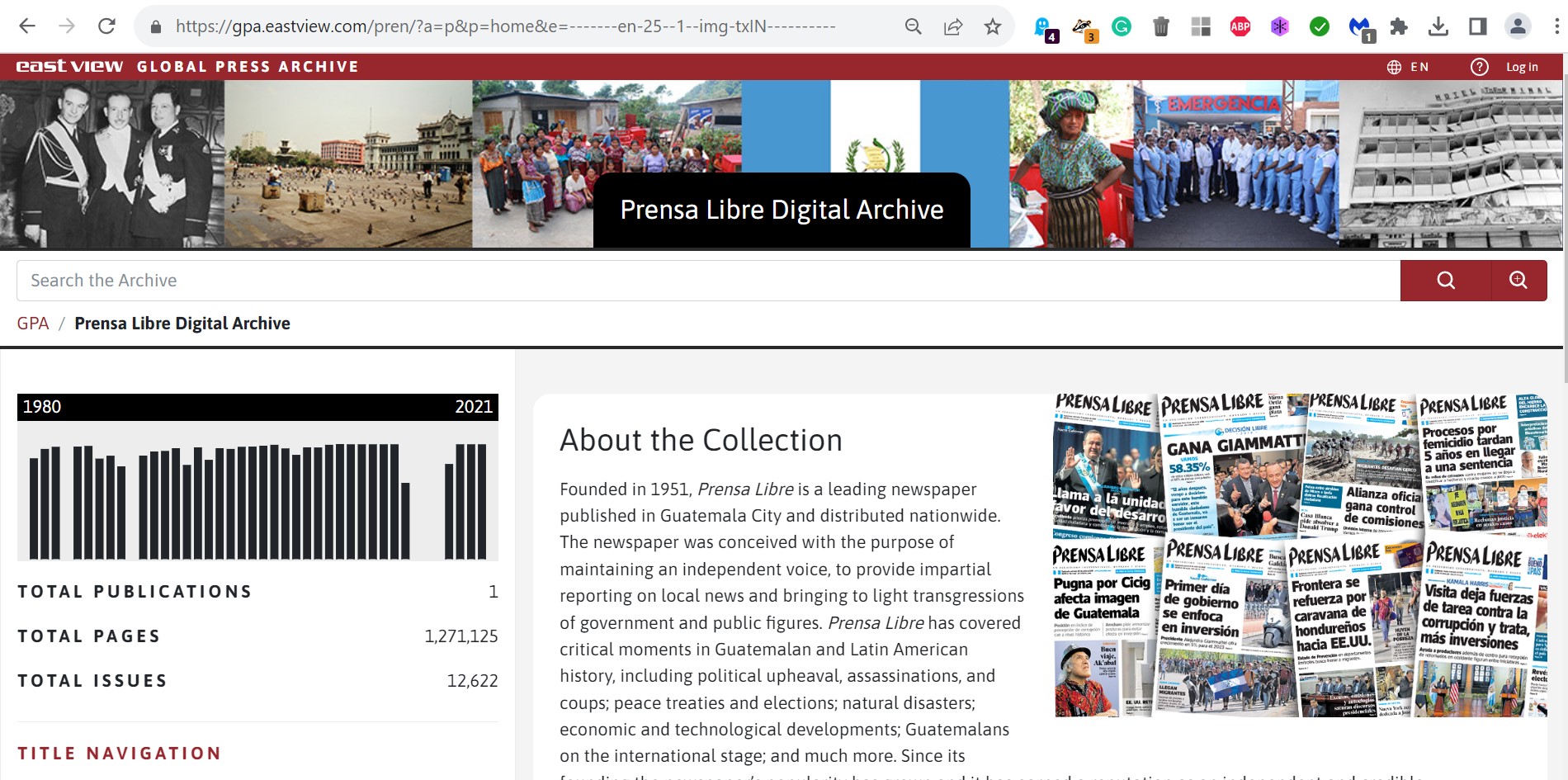The Library has started a thirty-day trial of Prensa Libre Newspaper. One can access the resource by authenticating from an off-campus location using the following hyperlink: https://libproxy.berkeley.edu/login?qurl=https%3A%2F%2Fgpa.eastview.com%2Fpren%2F
Currently, the full-text content is available for the issues starting in 1980 through 2022.

Prensa Libre fue fundado el 20 de agosto de 1951 por Pedro Julio García, Álvaro Contreras Vélez, Salvador Girón Collier, Mario Sandoval Figueroa e Isidoro Zarco Alfasa.
Prensa Libre is a Guatemalan newspaper published in Guatemala City by Prensa Libre, S.A. and distributed nationwide. It was formerly the most widely circulated newspaper in the country and as of 2007 it has the second-widest circulation.[1] It is considered a local newspaper of record. It was founded in 1951. (Source: Wikipedia)